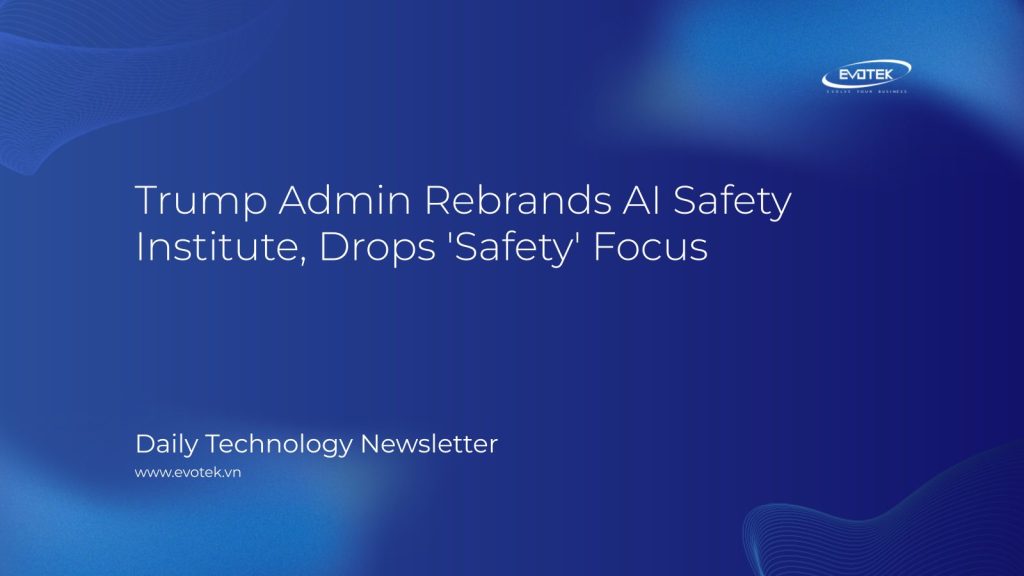The Trump administration is reshaping the landscape of AI oversight by reforming the U.S. AI Safety Institute, established under President Biden, into the Center for AI Standards and Innovation (CAISI).
Commerce Secretary Howard Lutnick announced the change, emphasizing a shift towards fostering AI innovation and security while addressing potential foreign influence. This move signals a departure from the previous administration’s focus on AI safety regulations, which the Trump administration believes could hinder U.S. competitiveness.
“For far too long, censorship and regulations have been used under the guise of national security. Innovators will no longer be limited by these standards,” Lutnick stated, highlighting the administration’s commitment to removing barriers to AI advancement.
CAISI will focus on evaluating and enhancing U.S. innovation in commercial AI systems, ensuring they meet national security standards. This includes identifying security vulnerabilities and addressing malign foreign influence, especially concerning AI systems developed by adversaries.
The original AI Safety Institute, formed to evaluate AI models and set safety standards, had a consortium of over 200 members, including industry giants like OpenAI, Meta, and Anthropic.
While the exact operational changes remain unclear, this transformation aligns with the Trump administration’s “pro-innovation” stance on AI deregulation. The new center will focus on preventing burdensome regulations from foreign governments and addressing potential security threats.
Concerns about international competition in AI, particularly from Chinese AI applications like DeepSeek, have fueled this shift. The Trump administration views these developments as a “wake-up call” for American tech companies.
The decision to reform the institute appears to have been in progress for some time, with reports indicating the absence of U.S. AI Safety Institute staff at a Paris AI summit earlier this year. The institute’s inaugural director, Elizabeth Kelly, also stepped down in February.
Vice President JD Vance echoed Lutnick’s sentiments at the Paris summit, advocating for international regulatory regimes that encourage AI creation rather than stifle it, emphasizing the importance of AI being free from “ideological bias.”
Since returning to office, President Trump has prioritized AI expansion, launching the $500 billion Stargate initiative with OpenAI, Oracle, and SoftBank to solidify the United States’ position as an AI leader.
Trump also signed an executive order aimed at easing AI regulations and revoking policies that impede American AI innovation, effectively reversing Biden’s focus on AI safety and privacy standards.

 日本語
日本語 한국어
한국어 Tiếng Việt
Tiếng Việt 简体中文
简体中文